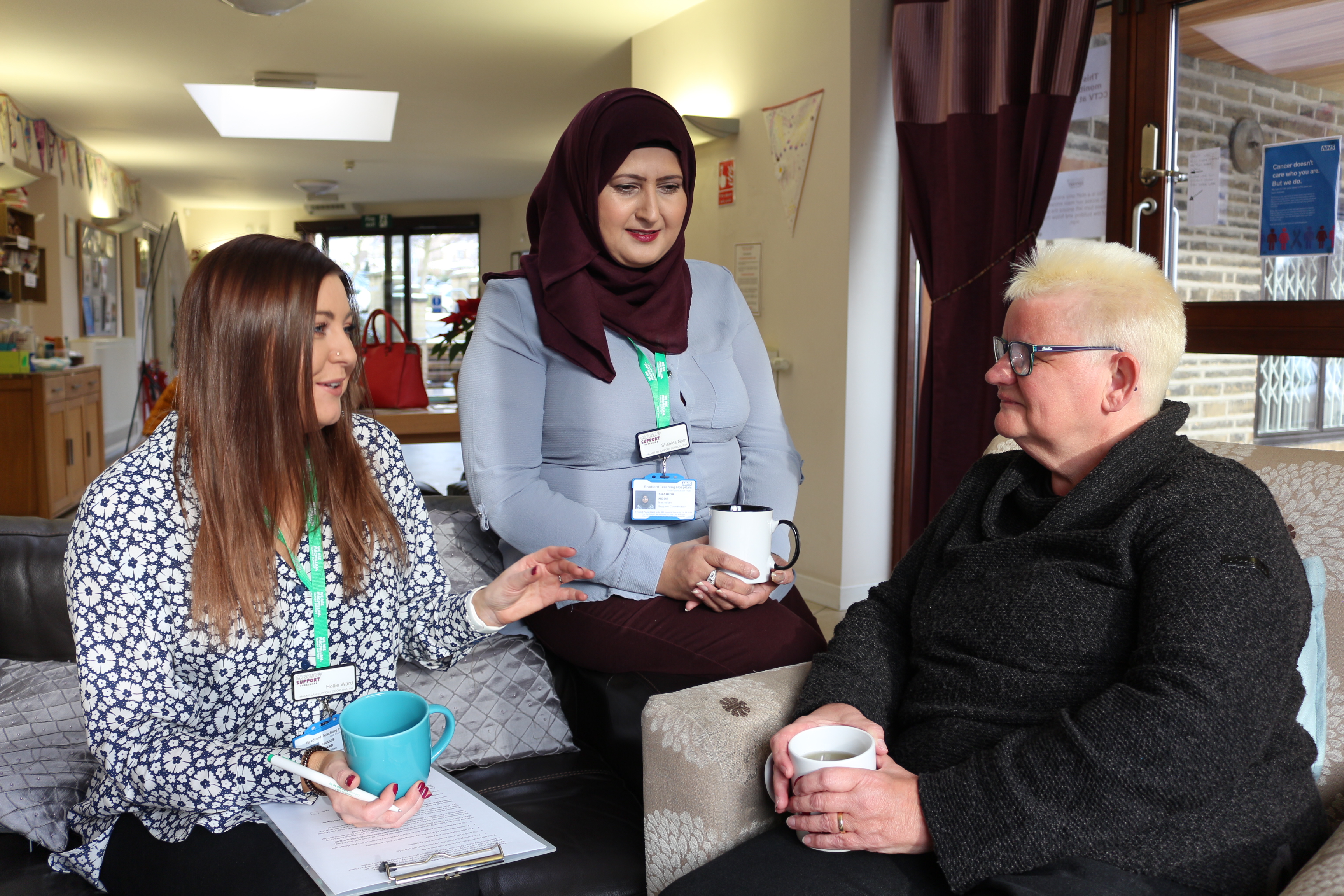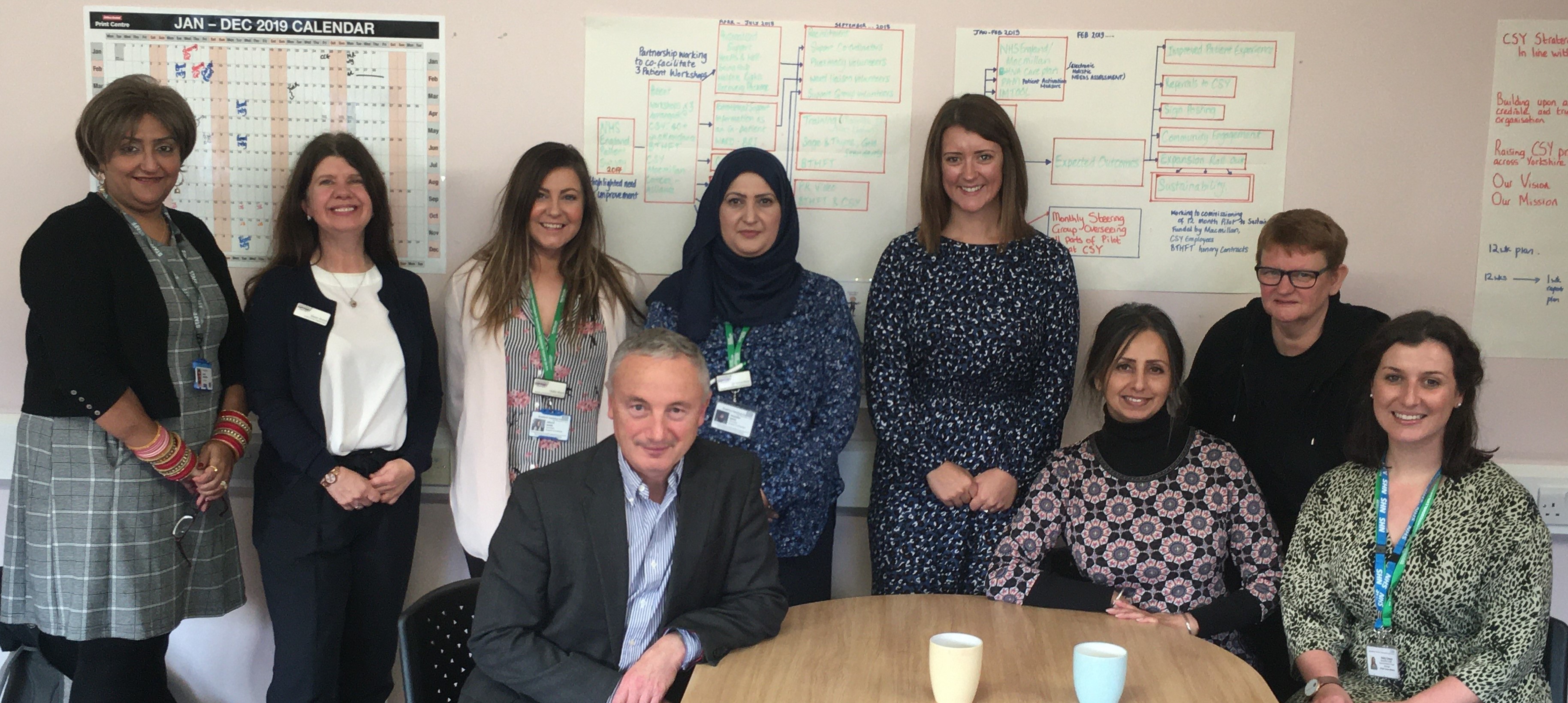Personalised Care and Support Planning
 Personalised Care and Support Planning (PCSP) is a systematic process based around “better conversations” between the person, or someone who knows them well, and their health and social care practitioners.
Personalised Care and Support Planning (PCSP) is a systematic process based around “better conversations” between the person, or someone who knows them well, and their health and social care practitioners.
It means a person has the choice and control over the way their care is planned and delivered, recognising their skills and strengths, in addition to their experiences and what matters to them the most. It focuses on personal life challenges and how to resolve them, and identifies what support a person may need to self-manage. Personalised Care and Support Planning is an essential tool for people receiving health and social care. It enables the person's experience of all services to be incorporated into a single, joined-up plan that covers all their health and wellbeing needs.
Pictured: Bradford's Next Steps Clinic at Cancer Support Yorkshire (case study below)
The care and support plan is developed following an initial holistic needs assessment (HNA) which focuses on a person’s clinical or physical concerns such as pain, fatigue and wound care, as well as practical, emotional or spiritual issues, and lifestyle or family concerns following a cancer diagnosis. This will continue through and beyond active treatment, which allows the patient to be signposted to services that can support and improve their overall experience. The person and or their family work together with their health and social care professionals to complete this assessment, subsequently leading to the production of an agreed personalised care and support plan which is effective and achieveable.
Gold Standard Planning Document - West Yorkshire and Harrogate
The Gold Standard Personalised Care and Support Planning using HNA Document written by the Trust Lead Cancer Nurses from across West Yorkshire and Harrogate is used as a reference across the region.
The document specifies the opportunities during the patient pathway for offering care and support planning to people affected by cancer, based on an Holistic Needs Assessment (HNA). The assessments should be completed:
- at diagnosis or at any time up to a week following diagnosis
- start of treatment (this may not be appropriate if treatment quickly follows diagnosis)
- when starting a new form of treatment
- within six months of completing treatment
- at the time of any disease recurrence
- at the beginning of a palliative phase
- on recognition of dying, which should be a joint assessment by the oncology Clinical Nurse Specialist and the palliative care team, when deemed appropriate.
The resource further highlights elements to be included in the process; the provision for patients to complete the assessment prior to their appointment, development of the personalised care and support plan, and who the plan should be shared with.
A copy of the care and support plan should then be recorded electronically, a copy given to the patient and shared with the patient’s GP to support self-management outside of the hospital and improve communication between primary care and secondary care.
Useful Information
More information on Personalised Care and Support Plans can be found here on the NHS England website.
The Macmillan template for Care Plans can be found here.
Electronic Holistic Needs Assessment web page
Macmillan HNA Care & Support Planning Guidance
Case Study: Bradford Next Steps Clinic at Cancer Support Yorkshire

Read more, and watch the video, about how patients in Bradford are being supported to live better and access support at the end of their treatment through Cancer Support Yorkshire's Next Steps Clinic, supported by Macmillan and the West Yorkshire and Harrogate Cancer Alliance.








